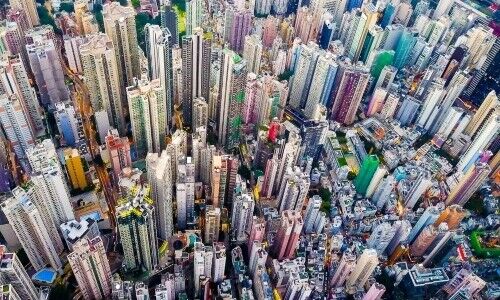Hong Kong Keeps Shrinking
The city’s population declines for the third year running but how much does it really matter? finews.asia takes a deeper look.
Demographics, particularly for the more mature, aging economies of this world, are fretted about constantly. Still, no one has ever come up with any solution other than to vaguely promote births with ill-conceived, insubstantial government subsidies.
In Asia, good demographics and expanding populations are seen as highly competitive matters. Both factors are seen as vital determinants of future economic growth. Despite that, an increasing number of countries are victims of the same ills afflicting many industrialized European countries.
Hong Kong has been a leading exponent of that trend as it has been on the losing side of the population battle for three years now, as shown by government statistics released Thursday.
Low Fertility Rate
The number of residents at the end of 2022 was slightly more than 7.3 million, down almost 1 percent from a year earlier. Moreover, the population is off 187,000 from the 2019 record (the statistics provided go back to 2011). That means it has lost the likes of roughly one Basel or Geneva in that time.
The government spokesperson, after seemingly deadpanning the obvious fact there were more deaths than births last year, mentioned the city’s fertility rate as being «persistently among the lowest in Asian economies».
In that context, it almost seems like a warning shot across the bow directed at all child-bearing couples living in every high rise between Taikoo Place and Whampoa Garden.
Little Success
But, as with other efforts in South Korea, and China, it is likely to meet little success, as finews.asia previously indicated.
Having children in a crowded, modern Asia city with a general, latent uncertainty compounded by the confusion of the post-pandemic era is a fraught exercise.
Not only is it expensive and hard, but one-time government payments or subsidies here or there will not change that.
All Not Lost
Still, the government does see some light at the end of the tunnel.
The trickle apparently slowed to a drop in the second half as the city returned to normality by getting rid of many of the most onerous Covid-19 measures.
It also has a plan to attract 35,000 people with 12-month permits, although, in truth, that is likely to have a very moderate impact on the population at best.
No Link
But maybe we should also get over all this demographic fear-mongering. As Jose Navarro de Pablo, an economist at the Asian Development Bank Institute says, there is a dubious link between the decline in fertility and growth.
According to him, this could even be positive, as ultimately it is the quality of people and not quantity, that is potentially a better determinant of future growth.
But Hong Kong is also in a unique situation. It is not just about births and deaths and demographics. There is geopolitics in there as well.
Geopolitics
Some of the fall-off that the city is experiencing is likely due to the events of the past four years and it will be some time until their full impact can be accurately assessed.
That includes the 2019 pro-democratic protests and the subsequent introduction of the national security law a year later. Above that, however, the most significant reason many foreign residents likely left the city is due to Covid-19.
In hindsight, the raft of required testing, forced quarantine, and permanent contact tracing now seems overdone. That is particularly so given how quickly all these measures came and went.























